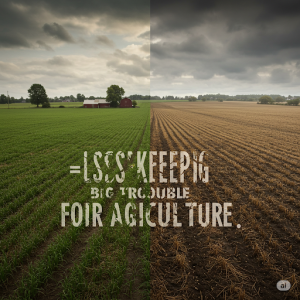India’s beekeeping industry is under serious threat.
Behind every spoonful of raw honey is a beekeeper who works day and night, moving bee colonies across flowering regions, battling diseases, weather, and now—something more dangerous: Chinese sugar syrups used to fake honey.
Let’s break it down. Because this doesn’t just affect beekeepers—it affects your health, agriculture, and the very future of honey.
The Rise of Advanced Sugar Adulterants

Today’s adulteration isn’t just about mixing jaggery or sugar water. It’s far more sophisticated.
Rice syrup, liquid glucose, high fructose corn syrup (HFCS), and inverted sugar—mainly imported from China—are used to mimic honey’s composition. Unfortunately, these syrups are designed to pass standard purity tests, making them hard to detect.
In fact, according to the US Food Fraud Database, honey is the third most adulterated food in the world. That’s how bad the situation has become.
How These Syrups Enter India

Despite import restrictions, these adulterants still make their way into the country.
How? They’re often relabeled and shipped via other countries, disguised as harmless food products. This tricks customs and lets the fake ingredients slip into the supply chain undetected.
Why Beekeepers Are Paying the Price

Meanwhile, real beekeepers suffer in silence.
Producing raw honey is expensive. It involves migrating to different regions, tracking blooming patterns, and patiently collecting nectar. On the other hand, big commercial brands use cheap syrups, cut costs, and flood the market with low-priced “honey.”
As a result, genuine beekeepers struggle to sell their honey, get underpaid, and often leave the profession altogether.
Less Beekeeping = Big Trouble for Agriculture

The impact goes beyond honey.
With fewer beekeepers, bee populations drop. That’s alarming because bees are essential pollinators. When pollination decreases, crop yields fall, leading to reduced food production and higher prices for consumers.
So, saving beekeeping isn’t just about honey. It’s about saving farming too.
What’s the Government Doing?

To tackle this, the Government of India, through the National Bee Board, has launched several initiatives.
These include:
-
Financial support for beekeepers
-
Skill-building programs
-
Research to improve honey quality and production
One major initiative is the “Development of Beekeeping for Improving Crop Productivity” scheme, aiming to revive and support ethical beekeeping across India.
Why Big Brands Don’t Sell Raw Honey

Here’s the truth: most big brands can’t afford to sell raw honey.
Why? First, raw honey crystallizes—a natural process that consumers often misinterpret as spoilage. To avoid returns and complaints, brands heat and ultra-filter honey to keep it shiny and syrupy.
Secondly, raw honey is in short supply and expensive. Big brands rely on volume over quality, and raw honey just doesn’t fit into that model.
So, what you see on supermarket shelves is often a sweet illusion, not the real deal.
Health Risks of Adulterated Honey

Let’s not forget—fake honey is essentially liquid sugar.
Regular consumption can lead to:
-
Blood sugar spikes
-
Weight gain
-
Increased risk of diabetes
-
Heart and kidney complications
What’s worse, most people consume it daily, thinking it’s healthy.
How to Find Real, Raw Honey

So, what can you do?
-
Choose a local or regional brand that works directly with beekeepers.
-
Look for variety—true raw honey comes in many floral types like Sidr, Acacia, or Jamun.
-
Ask for NMR test reports from German labs like INTERTEK. This test can detect even the most advanced adulterants.
-
Read genuine customer reviews. Avoid flashy deals or unrealistic offers.
Why consumers Trust Bharat Honey
At Bharat Honey, we’ve been committed to real honey for over 30 years. We work closely with beekeepers across India, offering them fair prices and support.
Every batch of our honey is:
-
100% raw and unprocessed
-
Backed by a ₹1,00,000 challenge—if any adulteration is found by any lab in the world, we’ll pay both the reward and the lab fee.
From the floral fields of Kashmir to the forests of Madhya Pradesh, we bring you natural honey with nothing added, nothing taken away.
conclusion
You deserve real honey. Beekeepers deserve fair support. And together, we can protect both.
So, the next time you pick up a bottle of honey, don’t fall for the shine. Look for truth, look for raw.
And if you want a place to start, start with Bharat Honey—purity that doesn’t need a label to prove itself.

